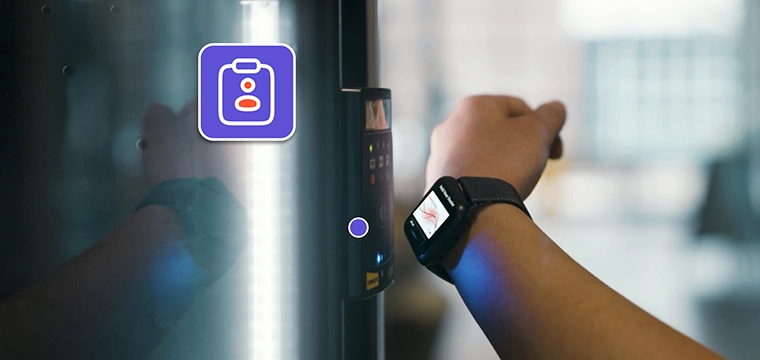Development of a new line of intelligent keyless door locks that can meet an office building’s or university’s centralized physical and logical security needs were recently announced by door lock manufacturer ASSA ABLOY and CoreStreet, a provider of validation and authorization technology.
Based on CoreStreet’s KeyFastTM Technology, Locks Successfully Merge
Physical and Logical Security
ASSA ABLOY, the world’s leading manufacturer and supplier of locking solutions, and CoreStreet, a leading provider of validation and authorization technology, today announced the development of a new line of door locks, based on CoreStreet’s KeyFast technology. These are the first locks that successfully meet the promise of a centralized system for all security ? physical and logical. The new, intelligent locks cost-effectively extend the reach of existing security infrastructures, enabling connected and disconnected locations such as office buildings, college and university campuses, airplane doors, military bases and even cargo containers, to be centrally managed and secured.
“ASSA ABLOY and CoreStreet are pioneering a first-of-its-kind generation of keyless door locks that enable identity management to meet the physical world by extending the reach of physical access systems in a cost-effective way,” said Göran Jansson, deputy CEO and chief financial officer of ASSA ABLOY. “Converging physical and logical security with KeyFast-enabled products represents a great expansion in the security market from physical into overall security.”
Centralized Security Obstacle: The Cost Factor
While IT security has made tremendous advancements in recent years, physical access continues to rely on traditional models, due in large part to the cost of centralized management of access points. At an average cost of $3,000 - $5,000 per door, most organizations can only afford to manage a small subset of their doors electronically, relying on door locks with common key entry for the rest. The high cost is incurred by requiring a secure, hard-wired connection to a trusted authority at each door. With KeyFast-enabled products, connections are no longer required. This eliminates the main cost factor while substantially improving security - by allowing both connected and disconnected doors to be centrally managed.
The KeyFast-enabled product line consists of Access Control Units (ACUs) and the corresponding Access Management Server (AMS). Together, the technology extends centrally managed access control to wired and unwired locations such as cargo containers, airplane cockpits, trucks, etc.
KeyFast-enabled Products Today and Tomorrow
Three phases of Access Control Units are in development. The first ACU, which is being demonstrated at ASIS this week, looks much like a traditional card reader and is mounted near a door where it will send and receive permissions information. The second generation, due out in the first half of 2005, will be an integrated locking system that will include the door lock and the card reader in one unit. As the technology evolves, it will be embedded into an interchangeable core and be the size of a traditional door lock.
“ASSA ABLOY has been making great locks for a long time, and they understand that physical security is every bit as important as IT security,” said Phil Libin, president of CoreStreet. “This convergence is gaining momentum because of the economic benefits to organizations, as well as mandates such as the recent presidential directive, requiring unified credentials for all federal employees and contractors.”
ASSA ABLOY and CoreStreet demonstrated the intelligent locks and readers at the 50th Annual ASIS International 2004 Seminar and Exhibits, September 27 - 30, in Dallas, Texas.
White House to Federal Agencies: Merge Digital and Physical Security
The White House issued a presidential directive calling for a “Policy for a Common Identification Standard for Federal Employees and Contractors.” The policy, which is mandated to be completed by the end of February, 2005, calls for all federal employees and contractors to be able to use a single credential to access both federally-controlled physical locations as well as federally-controlled digital information systems. KeyFast enables federal organizations to meet this directive in a cost-effective manner.
KeyFast is based on CoreStreet’s Real Time Credential (RTC) technology. It works by allowing a system to perform both authentication and authorization securely in a small footprint without requiring secure communications to a trusted server at the point of each transaction. This enables sophisticated cryptographic techniques once considered too slow and costly for mainstream applications to be embedded universally in millions of everyday devices ? connected or disconnected ? such as locks.
CoreStreet’s KeyFast technology will be licensed and distributed worldwide through the companies of the ASSA ABLOY Group.




